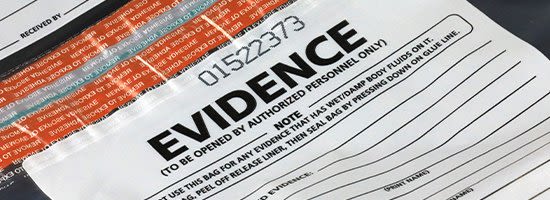
Motions to Suppress: Getting Evidence Excluded
The strength of a criminal case rests heavily on the amount of evidence presented by the prosecution. There are different categories of evidence that may be used against you to convict you of a crime, including but not limited to physical evidence and witness statements.
Law enforcement must adhere to strict procedural requirements when gathering evidence during a criminal investigation. Failure to follow the requirements could make the evidence obtained against the defendant inadmissible in court, which means the evidence cannot be presented at trial to support the prosecutor’s case.
Fortunately, defendants can ask the court to exclude inadmissible evidence from their criminal court by filing a motion to suppress. At McCready Law Group, I can help you prepare and file motions to dismiss inadmissible evidence and build a strong defense strategy to protect your freedom and future. I represent clients facing criminal charges in Long Beach, Lakewood, and Cypress Hill, California.
What Is a Motion to Suppress?
A motion to suppress is exactly what it sounds like. The motion is a written request prepared by the defendant or their attorney asking the court to exclude certain pieces of evidence from being presented and used at trial. There are several grounds for suppressing evidence in criminal cases.
According to the Cornell Law School, the proposed ground for getting evidence excluded from trial must be in the United States Constitution, a state constitution, or an appropriate statute that allows the defendant to file a motion and suppress the evidence. Common grounds to request a court to exclude evidence from the trial include:
Unlawful searches and seizures. The Fourth Amendment of the U.S. Constitution protects Americans against searches and seizures that are unreasonable or illegal. If the court finds that the evidence was obtained during an unlawful search or seizure, the evidence could be suppressed.
Miranda rights violations. When the police take you into custody, an officer is legally required to read you your Miranda rights. Another Miranda rights violation occurs when the police do not permit you to have an attorney present when questioning you.
Flaws in the chain of custody. There are strict procedural requirements in place for handling pieces of evidence obtained by the police. Chain of custody errors may occur if the evidence was tampered with, a transfer of evidence occurs within an unreasonable amount of time, or other violations occur.
Evidence obtained during a criminal investigation affects the outcome of your criminal case. If there is no evidence to prove that you are guilty, the charges against you can be dismissed. That is why it is vital to understand how you can use a motion to suppress in order to get some pieces of evidence excluded from your case.
The Process of Filing a Motion to Suppress
If you want to exclude certain pieces of evidence from your criminal case, you need to understand the process of filing a motion to suppress. If you are charged with a misdemeanor offense, you will have an opportunity to file a motion to suppress at the arraignment. Alternatively, you can submit the motion any time before the trial takes place unless you could not have reasonably discovered that the evidence was obtained illegally before trial.
In felony cases, defendants can file a motion to suppress at the preliminary hearing before trial. Alternatively, they can file the motion at a special hearing before trial. Once a motion is filed, the court will schedule a hearing at which both parties will have the opportunity to present their arguments to support their case. The court may hear testimony from the defendant, the arresting officer, witnesses, and other parties.
If you suspect that the evidence against you was obtained illegally, you might want to understand your options for getting the evidence excluded by filing a motion to suppress. An experienced criminal defense attorney can analyze your specific situation and determine if you have grounds to file a motion to suppress.
Experienced Advocacy You Can Trust
If you are facing criminal charges, your freedom, reputation, and future may be at stake. That is why you need to explore all of your defense options, including filing a motion to suppress to get the prosecutor’s evidence against you dismissed or excluded from the trial. As a knowledgeable criminal defense attorney in Long Beach, California, I can help you build an effective defense and defend you in a court of law. Get a case review by contacting my firm, McCready Law Group, today to determine if you can file a motion to suppress in your specific case.
